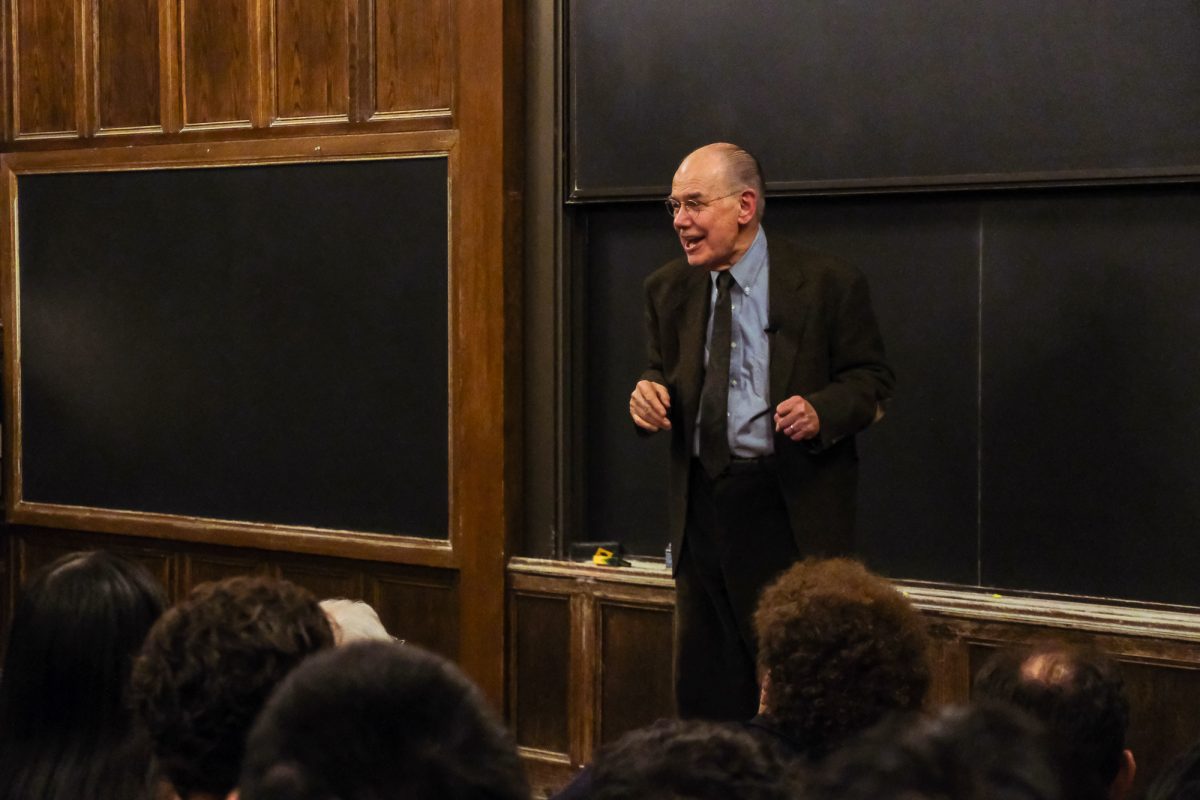“I reject the notion that we are reinventing anything,” Purdue University President and former governor of Indiana Mitch Daniels said to a crowded room at the Quadrangle Club on Monday, laying out his ideas about the future of higher education and his vision for Indiana’s second-largest public research university.
Daniels made it clear that the reforms currently taking place at Purdue should be the norm. Since taking the helm of the school in 2013, Daniels has implemented one of the most ambitious agendas in higher education, most notably freezing tuition raises for two years.
Upon leaving office after two terms as governor of Indiana, Daniels was thrust into the world of higher education without much preparation. He recounted taking an educational “field trip” to the University of Chicago while still in office to meet with President Zimmer: “[Zimmer] spent more than an hour answering a lot of my very naïve questions.”
Under Daniels’s two-and-a-half-year tenure, Purdue’s administration has frozen tuition, lowered the costs of meal plans, and cut fees for the university’s cooperative education program.
Previously the director of the Office of Management and Budget under President George W. Bush, Daniels has earned a reputation as a numbers-oriented pragmatist. The projects he mentioned fittingly emphasized an approach to higher education reform based on data analysis. He explained Purdue’s new partnership with the research-based consulting firm Gallup to design a system that will measure students’ “critical learning abilities” each year. The survey will also track the personal success of students after they graduate in an attempt to gauge the effectiveness of a Purdue education.
Looking at the problem of rising tuition from the standpoint of the student, Daniels said, was the first step in differentiating Purdue from other schools. “Let’s see if we can adapt our spending to the students’ budgets,” he explained of the university’s approach, “as opposed to requiring them to adapt their family budget to our spending.”
Daniels lamented the inefficiency and waste that he sees as having permeated even the top tiers of American schools. “Schools have vastly expanded spending on things that aren’t directly related to a better education,” he said, citing unnecessary amenities as a primary culprit. This attitude also seems to extend to his views on executive pay–Daniels’s salary of $420,000, with performance-based incentives of up to $126,000, consistently ranks among the lowest in the Big Ten, according to the Indianapolis Star.
A former politician himself, Daniels also touched on a hot political topic during the conversation, arguing that massive federal entitlement programs siphon funds from investment in STEM education and research. “Entitlement spending is not just a tomorrow problem, it’s a today problem,” he said. “Autopilot spending…[is] crowding out the ability of government to do the necessary things, the so-called discretionary things, as circumstances change and new problems emerge.”







